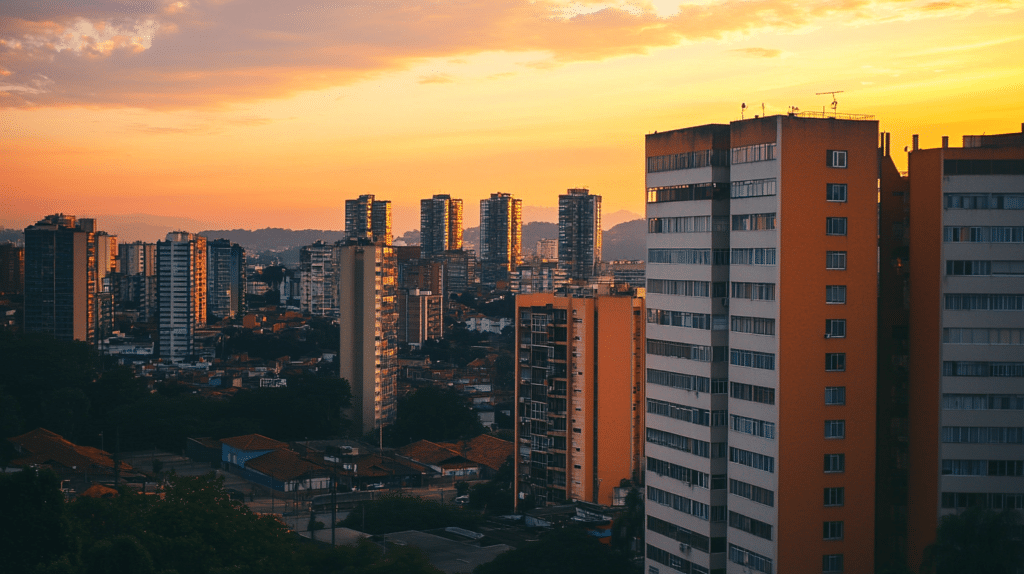Trading birdsong for traffic sounds, starlit nights for city lights, and wide-open spaces for apartment living isn’t just a change of address – it’s a complete lifestyle transformation. Whether you’re leaving your rural hometown in New Zealand for a job in Sydney or swapping your farm for a Melbourne apartment, the transition to city life brings both exciting opportunities and significant challenges.
The shift from country to city life impacts everything from how you shop for groceries to how you spend your weekends. Gone are the days of knowing everyone at the local store or letting your dog run free in the backyard. Instead, you’ll discover a world of convenience, diversity, and endless possibilities – albeit with some adjustments to your daily routines and expectations.
Choosing the Right City & Neighborhood
Finding your place in the urban jungle requires careful consideration. Each city neighborhood has its own personality, and finding local removalists with FindAMover to move you there can help make a good start to your experience. Inner-city areas offer excitement and convenience but come with higher prices and noise levels. Middle-ring suburbs often provide the best balance of amenities and livability, while outer suburbs might feel more familiar to country dwellers but require longer commutes.
Consider your priorities: Are you willing to pay more for a shorter commute? Do you need green spaces nearby? Would you prefer a high-rise with views or a ground-floor apartment with a small courtyard? Research crime rates, local amenities, and transport options before committing to an area.
Housing Differences

The most immediate challenge for many country transplants is adapting to smaller living spaces. Your sprawling country home might have cost less than a tiny city apartment, and you’ll likely need to make tough decisions about what to keep. Storage becomes precious, and you’ll learn the art of maximizing every square meter.
City apartments come with their own rulebook. Body corporate regulations might restrict everything from pet ownership to balcony use. You’ll need to adjust to shared spaces, neighbor noise, and the lack of a private yard. However, many find that clever organization and thoughtful design can make even the smallest space feel like home.
Getting Around
One of the biggest culture shocks is the shift in transportation. Your trusty car, once essential for country life, might become more of a liability in the city. Parking can cost as much as a small car payment, and traffic can turn a simple trip to the shops into an hour-long ordeal.
Learning to navigate public transport takes time but offers freedom from parking woes and traffic stress. Start by getting a transport card and downloading transit apps. Take some practice runs on weekends when there’s less pressure, and don’t be afraid to ask locals for help. Many city dwellers find they eventually prefer public transport to driving. However, if you really can’t live without your dirt bike for weekend rides, hire a motorcycle transporter with Movingle to move it to the city for you on the next run up.
Cost of Living
The financial reality of city living can be shocking at first. Rent might eat up 40-50% of your income, and everyday expenses tend to be higher. However, cities also offer more opportunities for saving: bulk shopping, competitive service providers, and countless free entertainment options.
Create a realistic budget that accounts for city-specific expenses like parking, public transport, and entertainment. Look for ways to economize without sacrificing quality of life – many city dwellers save money by sharing accommodation, shopping at markets, and taking advantage of free city events.
Adjusting to City Life
The constant hum of city life takes getting used to. Traffic noise, sirens, and the general buzz of urban activity might keep you awake at first. Invest in good curtains and perhaps a white noise machine. Remember that like any new sound, urban noise eventually becomes background music to your daily life.
Crowds can feel overwhelming after country living. Seek strategies help you acclimate to life in a new city. Start small – explore your neighborhood during quieter times, find local parks and quiet spaces, and gradually venture into busier areas as you become more comfortable. Many cities have hidden peaceful spots that locals know about – seek these out for moments of tranquility.
Building a Social Life in the City
Cities can feel paradoxically lonely despite being surrounded by people. The key is finding your community. Join interest-based groups, attend local events, and be open to new friendships. City people might seem less immediately friendly than country folks, but they’re often just as welcoming once you break the ice.
Use platforms like Meetup or local Facebook groups to find people with similar interests. Consider taking classes or joining sports teams – shared activities make forming connections easier. Remember that building a social network takes time, so be patient with yourself.
Staying Connected to Your Country Roots

Moving to the city doesn’t mean abandoning your rural identity. Many city apartments can accommodate small herb gardens or indoor plants. Weekend trips to nearby natural areas can satisfy your need for open spaces. Stay in touch with country friends and family through regular visits and video calls.
Bring elements of country life into your city home – display photos of your hometown, cook familiar meals, and maintain traditions that matter to you. Many find that blending country values with city opportunities creates a rich and satisfying lifestyle.
Final Thoughts on Embracing the Change
The transition from country to city life is a journey that takes time and patience. Some days you’ll miss the peace and space of rural living, while others you’ll wonder how you ever lived without the convenience and opportunities of the city. Remember that feeling homesick is normal, and it’s okay to take time adjusting to your new urban lifestyle.
Focus on the possibilities rather than the limitations. Cities offer incredible opportunities for personal and professional growth, cultural experiences, and meeting diverse people. With time, you’ll likely find yourself appreciating both your country roots and your new urban lifestyle, having created a unique blend that works for you.

